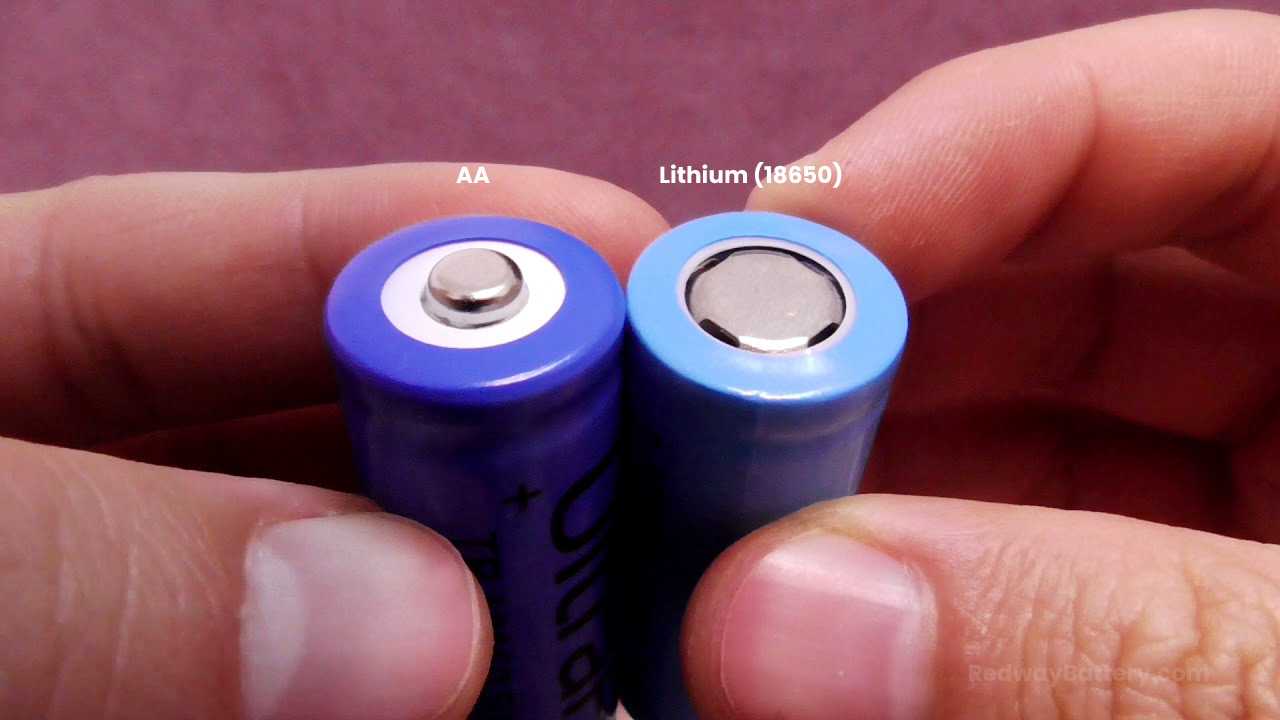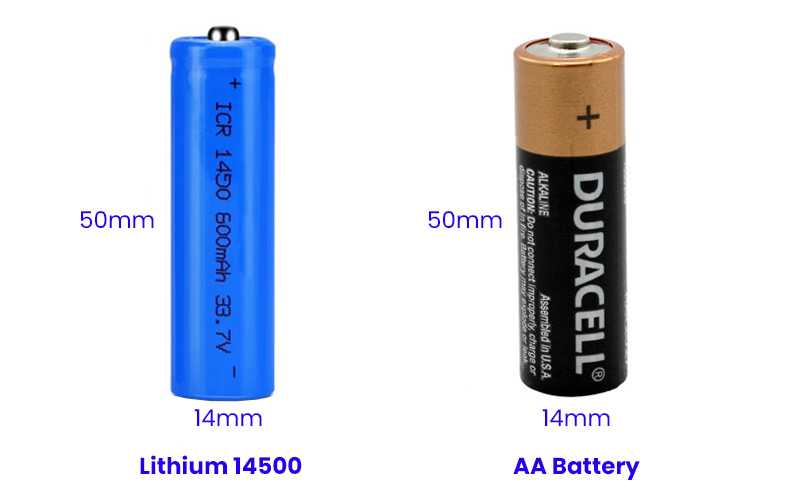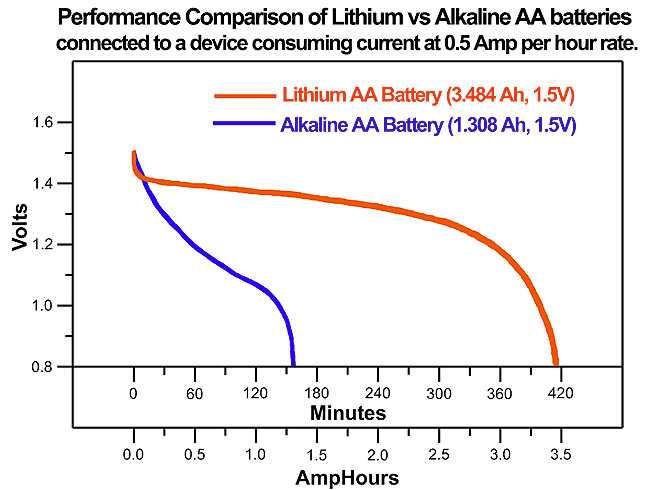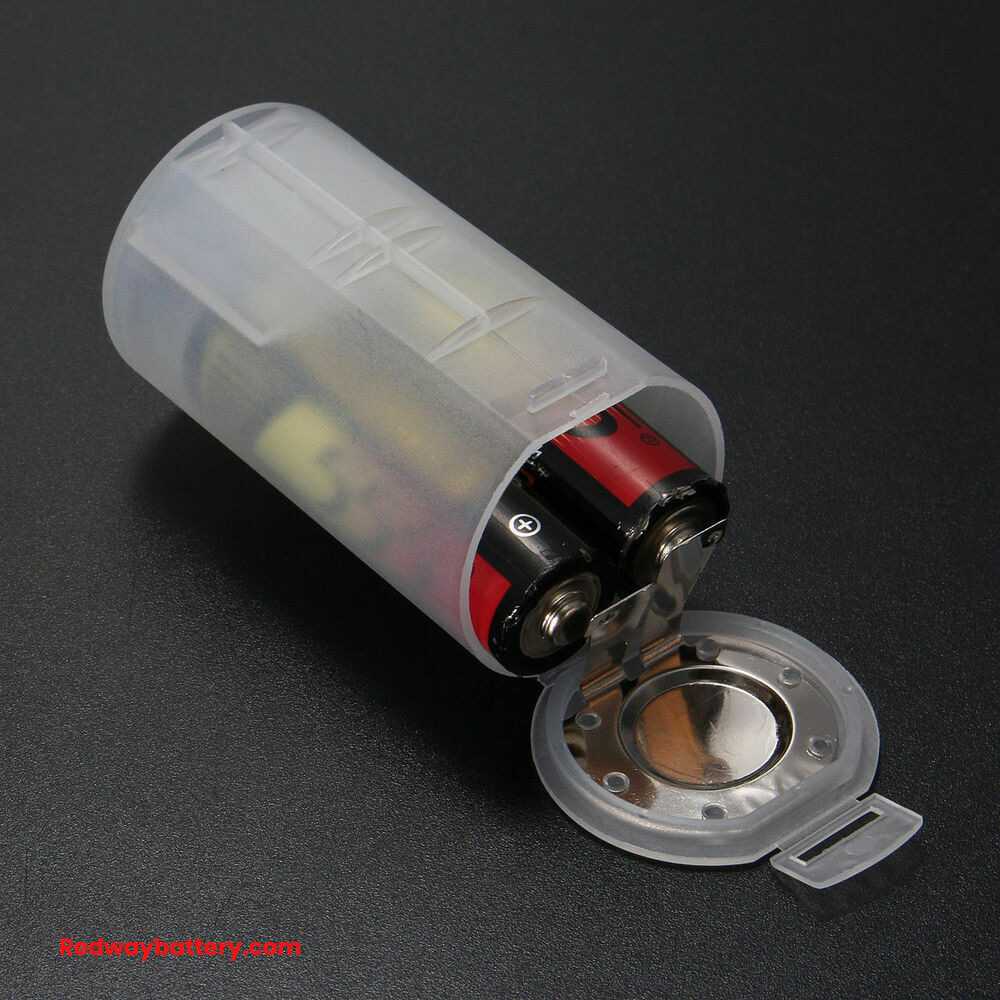Are you tired of constantly replacing AA batteries in your devices? Do you find yourself rummaging through drawers, searching for spare ones when you need them the most? Well, what if I told you there’s a better alternative – lithium batteries! In this blog post, we’ll explore whether you can replace AA batteries with lithium and discover the advantages and disadvantages of making the switch. So sit back, relax, and let’s dive into the world of battery power!

The differences between AA and lithium batteries
At a glance, AA and lithium batteries might seem similar, but they have key differences affecting their use. Understanding these distinctions is vital for choosing the right power source.
1. Voltage Output:
- AA Batteries: Standard 1.5 volts.
- Lithium Batteries: Higher voltage, usually around 3.6 to 3.7 volts.
- Impact: Devices designed for AA might not handle the higher voltage of lithium batteries.
2. Lifespan:
- AA Batteries: Last 4-6 months under regular use.
- Lithium Batteries: Endure hundreds of charge cycles before replacement.
- Effect: Different longevity due to rechargeable nature of lithium batteries.
3. Size:
- AA Batteries: Physical size (50mm x 14mm) used in various devices.
- Lithium Batteries: Vary in size from coin cells to larger cylindrical ones.
- Usage: AA is standard across many devices, while lithium varies widely based on applications.
4. Compatibility and Design:
- Important Note: Some devices aren’t compatible with both types due to distinct power requirements and design specifications set by manufacturers.
Understanding these differences helps in choosing the right battery based on specific device needs and power demands.

Advantages and disadvantages of using lithium batteries
Lithium batteries have surged in popularity due to their unique benefits, but they also come with some considerations that users should be aware of.
Advantages:
- High Energy Density: Compact size with ample power storage, perfect for portable devices like smartphones and cameras, ensuring longer usage without frequent recharging.
- Extended Lifespan: Endure hundreds or thousands of charge cycles, reducing replacement frequency and minimizing waste compared to traditional batteries.
- Lightweight and Low Self-Discharge: Ideal for weight-sensitive devices like drones or wearables, and they retain charge over longer periods of inactivity.
Disadvantages:
- Higher Upfront Cost: Initial expense is greater compared to regular AA batteries, but the long-term cost per cycle might be lower due to longevity and efficiency.
- Compatibility Concerns: While most devices adapt to lithium alternatives, older models may not be compatible due to varying chemistry and voltage requirements.
- Safety Hazards: Mishandling or improper use can lead to safety risks like overheating or even explosions, necessitating strict adherence to manufacturer guidelines for charging and storage.
In summary, despite cost considerations and compatibility issues with some devices, the advantages offered by lithium batteries, including durability and eco-friendliness, make them an attractive choice for many seeking reliable, long-lasting power sources.

Compatibility of lithium batteries with devices that require AA batteries
One common question surrounds the compatibility of lithium batteries with devices requiring AA batteries. Understanding this can ease concerns when making the switch.
Compatibility Insights:
- Generally Compatible: Most devices using AA batteries can accept lithium replacements without issues, including household items like remote controls or flashlights.
- Voltage Alignment: Lithium batteries offer the same 1.5 volts as traditional alkaline or NiMH AA batteries, ensuring seamless powering of devices without compatibility concerns.
- Extended Lifespan: Lithium batteries last longer than traditional AA batteries, offering cost savings due to reduced replacements over time.
Considerations for High-Drain Devices:
- Compatibility Caution: High-drain devices like certain digital cameras or power-hungry toys may not perform optimally with lithium batteries due to their power demands.
- Device Specifications Check: Before switching, it’s advisable to review device specifications or consult the manufacturer to ensure compatibility with lithium alternatives.
For most everyday household devices, transitioning from AA alkaline or NiMH batteries to lithium should pose minimal compatibility concerns. Just be cautious with high-drain gadgets that might require specific battery specifications!

Cost comparison between AA and lithium batteries
Cost is a significant consideration when it comes to batteries. Understanding the expense comparison between traditional AA batteries and lithium options can guide smarter choices.
Cost Contrast:
- AA Batteries: Widely available in cost-effective packs, but frequent replacements might be necessary, especially for high-drain devices like cameras or gaming controllers.
- Lithium Batteries: Initially pricier than AAs but boast a longer lifespan due to higher energy density, requiring fewer replacements over time and saving money in the long term.
- Consistent Power Output: Lithium batteries maintain consistent power delivery throughout their lifespan, unlike AA batteries that gradually lose efficiency as they drain.
Device Compatibility and Considerations:
- Compatibility Limits: Not all devices can use lithium batteries; some specifically require AA-sized cells and may not function optimally with other battery types.
- Decision Weighing: Considering the higher initial cost of lithium batteries and device compatibility concerns, assessing individual needs becomes crucial before transitioning.
It’s essential to consider individual usage patterns and device compatibility factors when deciding between AA and lithium batteries to make a cost-effective choice.
Environmental impact of both types of batteries
Assessing the environmental impact of batteries involves considering their disposal and production effects. Understanding these aspects helps in making environmentally conscious choices.
Environmental Impact:
- AA Batteries: Traditional alkaline types contain heavy metals like mercury, cadmium, and lead, posing significant environmental risks if improperly disposed. Contaminating soil and water, they endanger ecosystems and human health.
- Lithium Batteries: While more energy-efficient and longer-lasting, lithium batteries, especially lithium-ion types, can be reused multiple times, reducing overall battery consumption and waste generation.
- Production Concerns: The production process for lithium batteries, involving raw material extraction like lithium, demands considerable energy and may contribute to carbon emissions if not sustainably sourced.
Recycling Challenges:
- Alkaline Batteries: Recycling programs exist for alkaline AA batteries in many places worldwide.
- Lithium Batteries: However, recycling facilities for lithium-ion batteries remain relatively limited, posing challenges for their proper disposal.
Considering the environmental impact of both AA and lithium batteries is crucial for making informed choices about which battery type to use in devices, factoring in disposal methods and production processes.

Conclusion: Should you make the switch to lithium?
Switching to lithium batteries offers longer-lasting power and environmental benefits compared to traditional AA batteries. With higher energy density, they suit high-drain devices like cameras or gaming consoles. Rechargeable options reduce waste, contribute to a greener future, and prove more cost-effective in the long run despite an initial upfront cost.
However, compatibility issues exist, requiring device checks before transitioning. Overall, considering their efficiency, reduced environmental impact, and long-term cost savings, moving to lithium batteries appears advantageous, especially for high-drain device users aiming for sustainability and savings.


